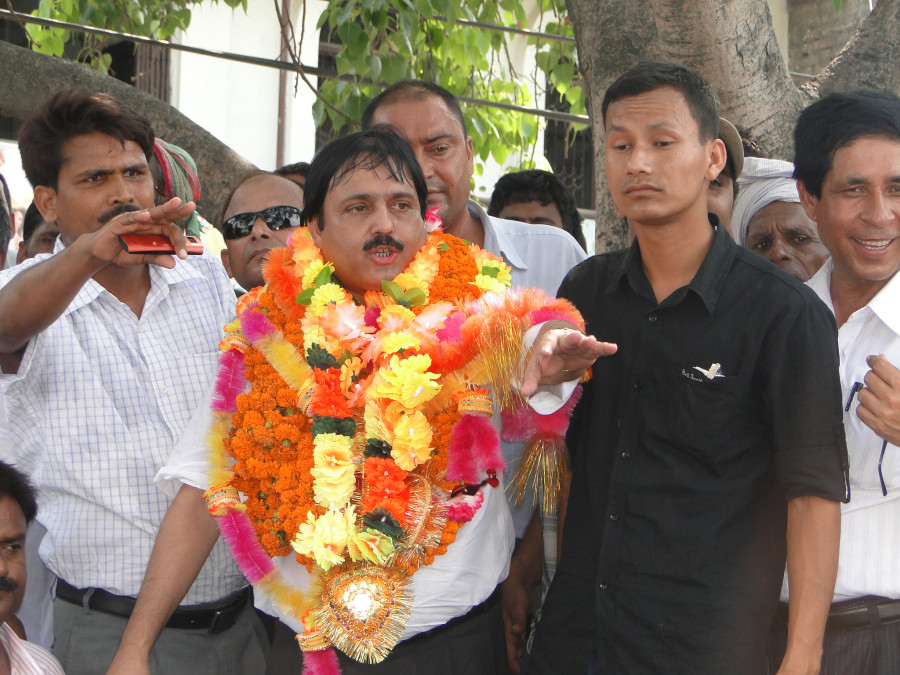Editorial
Members charged with a crime should be removed forthwith
The criminalisation of politics is a threat to the basic structure of the constitution, but the current regulation allows lawbreakers to continue as lawmakers.
The police arrested Nepali Congress lawmaker Mohammad Aftab Alam on Sunday in connection with a bomb explosion and subsequent murder of at least 23 persons that occurred in Rautahat 12 years ago. Alam was elected to the federal Parliament from Rautahat constituency-2 in the 2017 elections. Two months after the incident, on June 23, 2008, Alam had turned himself in to the police when a first information report was filed identifying him as the primary accused. However, the Office of the Attorney General, on July 14, 2008, decided against pursuing a criminal case against Alam and five others.
Read: Suspended Congress MP Alam remanded in custody for seven days
In a multi-party democracy, where members are elected on party lines and are subject to party discipline, Parliament must bring out a strong law making it mandatory for the political parties to revoke the membership of persons charged with heinous and grievous offences. Previously, this provision was included in the House Regulations. But the current regulation allows members of Parliament charged with crimes to remain in their posts.
The House Regulations were changed to suit the interest of a few parties and their members; but Parliament, in some way, passed a law that would encourage the criminalisation of politics, unanimously. The criminalisation of politics is a threat to the basic structure of the constitution, but the current regulation allows lawbreakers to continue as lawmakers.
Read: Mahara to remain in police custody for three more days
Just a few weeks ago, Krishna Bahadur Mahara, former speaker of the House and a Nepal Communist Party lawmaker was arrested on rape charges. But all along the while, the ruling party has maintained a conscious silence regarding the issue. But while the Nepal Communist Party has been mum in case of Mahara, Nepali Congress activists have been staging protests demanding the ‘unconditional’ release of lawmaker Alam. The opposition, by extending patronage to crooks, has engaged in the politicisation of criminals.
The criminalisation of politics and the politicisation of criminals both stem from the degrading ethics of politics. And this tells the kind of society we live in. Mainly when it comes to the short-sightedness of those in charge of running the country. What’s more, when laws and regulations are made or amended to suit the interests of a few, the rule of law ceases to matter. When those charged with criminal offences continue being addressed as lawmakers, what sort of moral force will they be able to wield? As representatives of the people, it is imperative for them to be perceived clean by the public.
Politicians run for elections claiming to serve the public. But elections and representatives lose their meaning if the chosen ones fall in the eyes of the public they have sworn to serve. As Nepal has undergone significant state restructuring following federalism, old practices need to change too. The first would be to cleanse the polluted stream of politics by prohibiting people with criminal antecedents so that they do not even conceive of the idea of entering politics. Such malignancy must be cured before it proves to be fatal for democracy altogether.
***
What do you think?
Dear reader, we’d like to hear from you. We regularly publish letters to the editor on contemporary issues or direct responses to something the Post has recently published. Please send your letters to [email protected] with "Letter to the Editor" in the subject line. Please include your name, location, and a contact address so one of our editors can reach out to you.




 9.7°C Kathmandu
9.7°C Kathmandu














